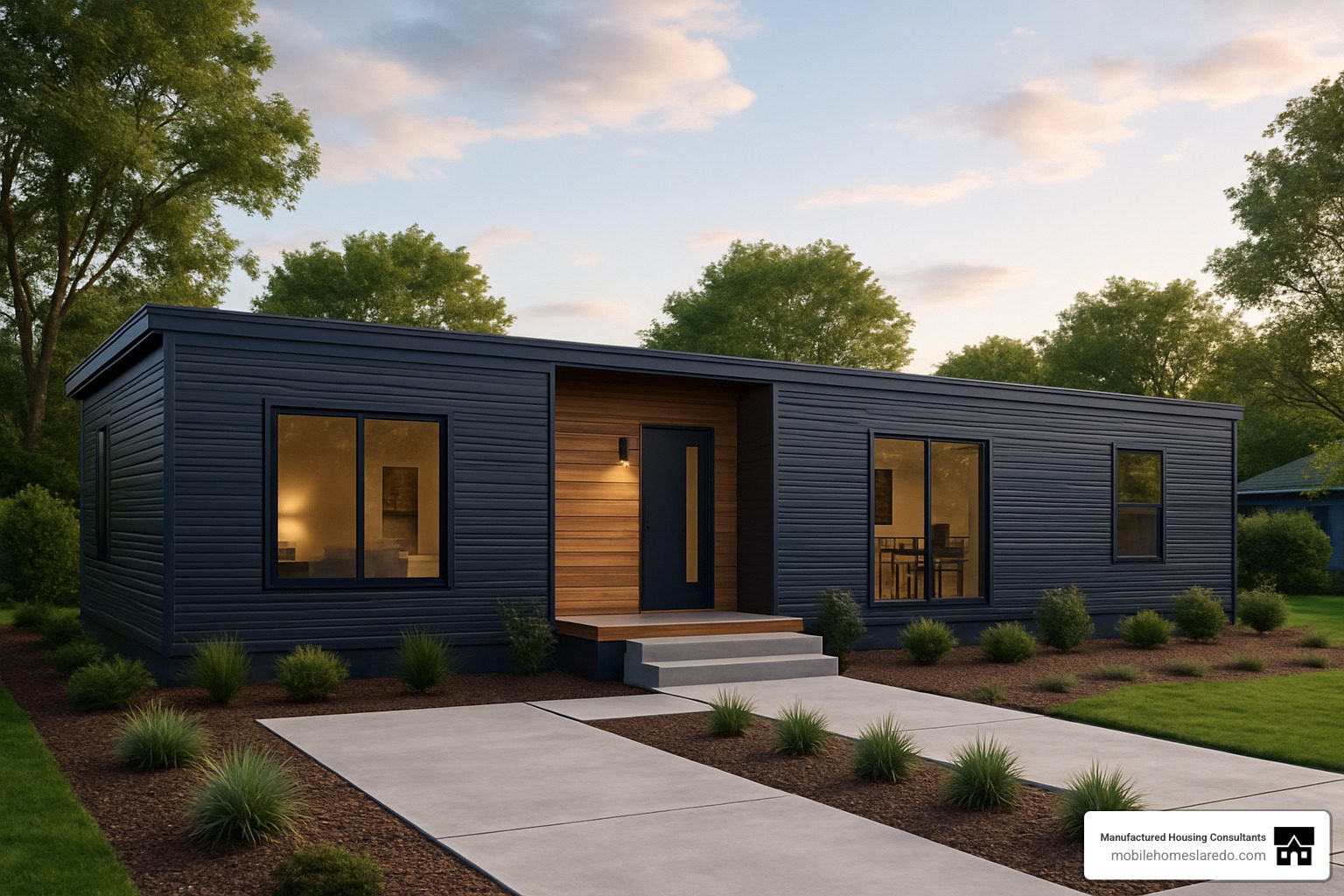Why Finding the Best Trailer Home Manufacturer Matters More Than Ever
The best trailer home manufacturer may surprise you – and picking wisely can save thousands while delivering a home that rivals traditional construction.
Top Trailer Home Manufacturers (2025 Guide):
- Skyline Homes – America’s Most Trusted® for 4 straight years (98.5 trust rating)
- Clayton Homes – MHI Manufacturer of the Year 7 years running
- Champion Home Builders – 3 million+ homes built, 500-2,300 sq ft floor plans
- Cavco Industries – First HUD-approved manufactured duplex creator
- Palm Harbor Homes – 12-year warranty, storm-tested durability
Built in climate-controlled factories, today’s manufactured homes deliver precision craftsmanship, energy savings of up to 50 percent, and near-custom design flexibility.
But not all manufacturers are created equal. Some focus on luxury, others on value or quick delivery. Knowing who excels at what will help you match a home to your budget and lifestyle.
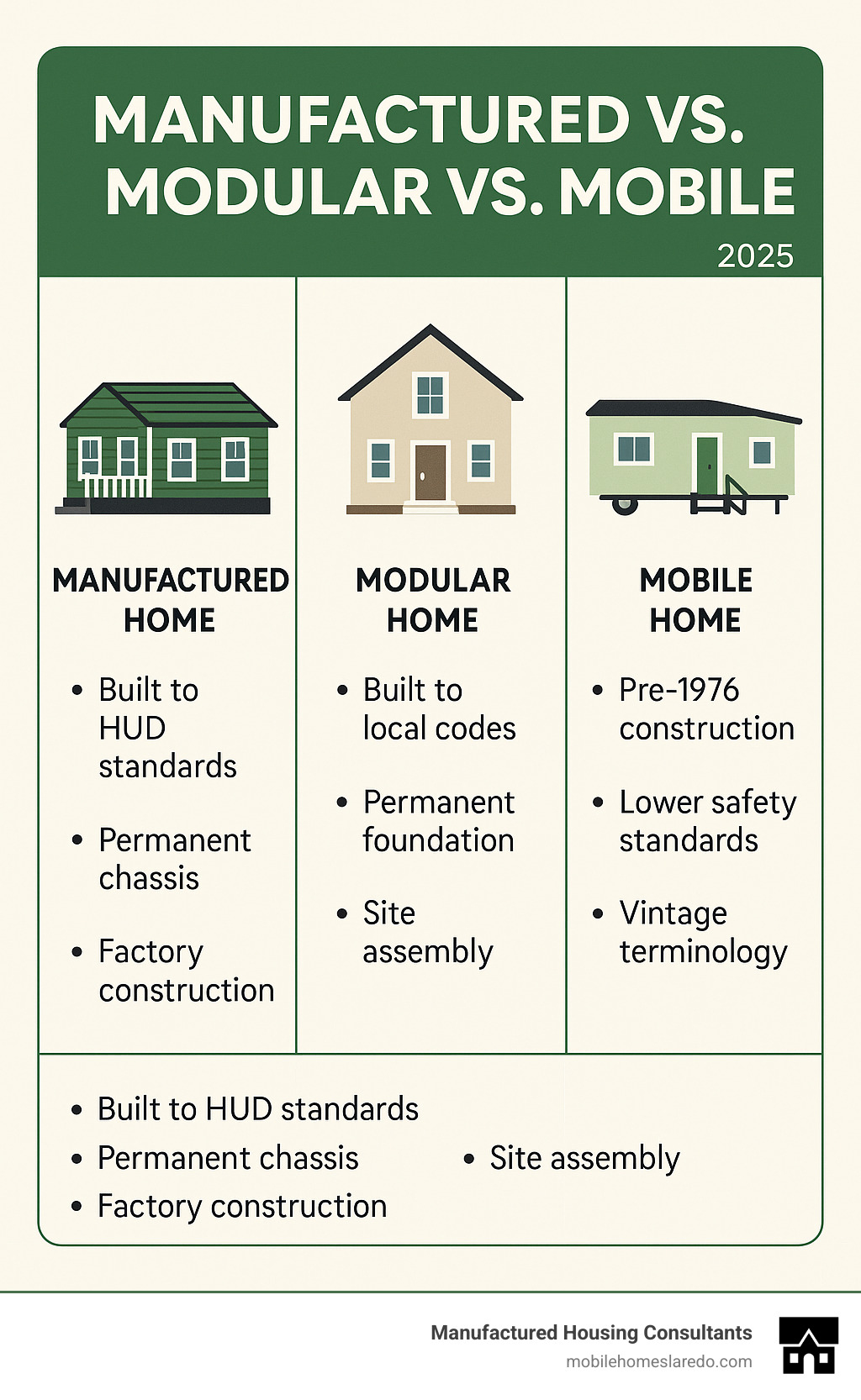
Must-know best trailer home manufacturer terms:
How to Choose the Best Trailer Home Manufacturer for Your Needs
Understanding the Lingo: Manufactured vs. Mobile vs. Modular Homes
Before diving into our top manufacturer picks, let’s clear up the confusion around terminology – because understanding these differences is crucial when evaluating the best trailer home manufacturer for your needs.
Mobile Homes (Pre-1976): These are the original “trailers” built before the National Mobile Home Construction and Safety Standards Act took effect on June 15, 1976. They were built on rolling chassis with lower safety and construction standards. If you’re shopping today, you won’t find new mobile homes – only used ones from this era.
Manufactured Homes (Post-1976): This is what most people mean when they say “trailer homes” today. Built after 1976, these homes must meet strict HUD (Department of Housing and Urban Development) standards for safety, construction, and design. They’re built in climate-controlled factories on permanent steel chassis and can be one, two, or three sections. For more details, check out our guide on Understanding Mobile, Modular, and Manufactured Homes.
Modular Homes: These are built in factory sections but assembled on-site on permanent foundations. They must meet local building codes rather than HUD standards, which often means they’re built to the same standards as traditional site-built homes. Modular homes typically cost more but may appreciate in value better than manufactured homes.
Tiny Homes: Usually under 400 square feet, these can be built on wheels (making them technically manufactured homes) or on permanent foundations. They’re perfect for minimalist living or as accessory dwelling units (ADUs).
Park Model RVs (PMRVs): These are recreational vehicles designed for seasonal use, typically under 400 square feet. They’re built to RV standards, not HUD standards, and are meant for temporary living.
The National Mobile Home Construction and Safety Standards Act revolutionized the industry by establishing federal building codes that ensure today’s manufactured homes are safe, durable, and energy-efficient.
Key Factors to Evaluate When Selecting the Best Trailer Home Manufacturer

When we help families in Texas find their perfect home, we always start with these essential criteria that separate the best trailer home manufacturer from the rest:
Quality and Durability: The best manufacturers use high-grade materials and employ skilled craftspeople with years of experience. For example, Skyline Homes’ production staff averages 10 years of experience, which translates to superior craftsmanship. Look for manufacturers that build in climate-controlled environments – this ensures consistent quality regardless of weather conditions.
Construction Standards: All manufactured homes must meet Department of Housing and Urban Development (HUD) standards, but the best manufacturers exceed these minimums. They often incorporate Energy Star appliances, superior insulation, and advanced construction techniques that rival site-built homes.
Price Range: The average manufactured home costs around $121,300, but prices vary significantly based on size, features, and manufacturer. Single-wide homes typically range from $60,000 to $150,000, while double-wide homes can cost $80,000 to $300,000 or more for luxury models. The key is finding the sweet spot between affordability and quality.
Customization Options: The best manufacturers offer extensive customization options. Champion Home Builders, for instance, provides floor plans ranging from 500 to 2,300 square feet with numerous upgrade options. Look for manufacturers that allow you to personalize everything from cabinet finishes to flooring materials.
Construction Time: One major advantage of manufactured homes is speed. Clayton Homes boasts a construction time of just 6-7 days once production begins. However, the total timeline from order to delivery typically ranges from 2-3 months, depending on customization levels and manufacturer capacity.
Warranties: Federal law requires at least a 1-year warranty, but the best manufacturers go far beyond this minimum. Palm Harbor Homes offers an impressive 12-year warranty, while some manufacturers provide lifetime warranties on structural components. A comprehensive warranty shows confidence in build quality.
Financing Options: The best manufacturers work with multiple lenders to offer various financing solutions. This is crucial because manufactured home financing can be more complex than traditional mortgages, especially if the home isn’t permanently affixed to owned land.
For more insights on choosing quality brands, read our comprehensive guide on Best Mobile Home Brands for You.
Top-Rated Brands: A Look at Industry Leaders
Based on our research and years of experience helping Texas families, here are the manufacturers that consistently deliver exceptional value, quality, and customer satisfaction:
Clayton Homes: The undisputed industry leader, Clayton has earned the MHI Manufacturer of the Year award seven consecutive years. Founded in 1956, they’ve perfected the art of efficient construction with their impressive 6-7 day build time. Clayton focuses on affordability without sacrificing quality, offering homes starting around $60 per square foot. Their eBuilt® homes can reduce annual energy costs by up to 50% and come solar-ready. For Texas buyers, Clayton’s extensive dealer network and financing options make them particularly attractive. Learn more about Clayton Mobile Homes in Laredo.
Champion Home Builders: With over 3 million homes built since 1953, Champion has earned its reputation through consistency and innovation. They offer one of the most extensive selections of floor plans in the industry, ranging from 500 to 2,300 square feet. What sets Champion apart is their focus on upscale design features typically found in site-built homes – think crown molding, recessed lighting, and premium cabinet finishes. Their 24 brands and 8,400+ employees ensure they can meet virtually any customer need. Check out our detailed Guide on Champion Mobile Homes.
Skyline Homes: The crown jewel of customer trust, Skyline has been named America’s Most Trusted® Manufactured Home Builder for four consecutive years, earning a remarkable 98.5 Net Trust Quotient Score in 2024. Founded in 1951, they’ve built over 24,500 homes with a focus on energy efficiency and modern design. Skyline’s commitment to sustainability and their average 10-year employee tenure in production roles speaks to their dedication to quality craftsmanship.
Cavco Industries: Innovation leader Cavco made history by creating the first nationally available, HUD-approved manufactured duplex called “The Anthem.” This breakthrough addresses the affordable housing crisis with a practical solution for fast expansion. Cavco also leads in Accessory Dwelling Units (ADUs), perfect for aging parents, adult children, or rental income. Their commitment to Environmental, Social, and Governance (ESG) principles sets them apart in corporate responsibility. Explore Cavco Mobile Homes in Laredo for more information.
Palm Harbor Homes: The durability champion, Palm Harbor has tracked their homes’ performance through major storms including Hurricanes Michael, Irma, Ike, Charley, and Andrew. Their exceptional 12-year warranty demonstrates confidence in their construction quality. Palm Harbor specializes in homes designed to withstand harsh weather conditions, making them ideal for areas prone to severe weather.
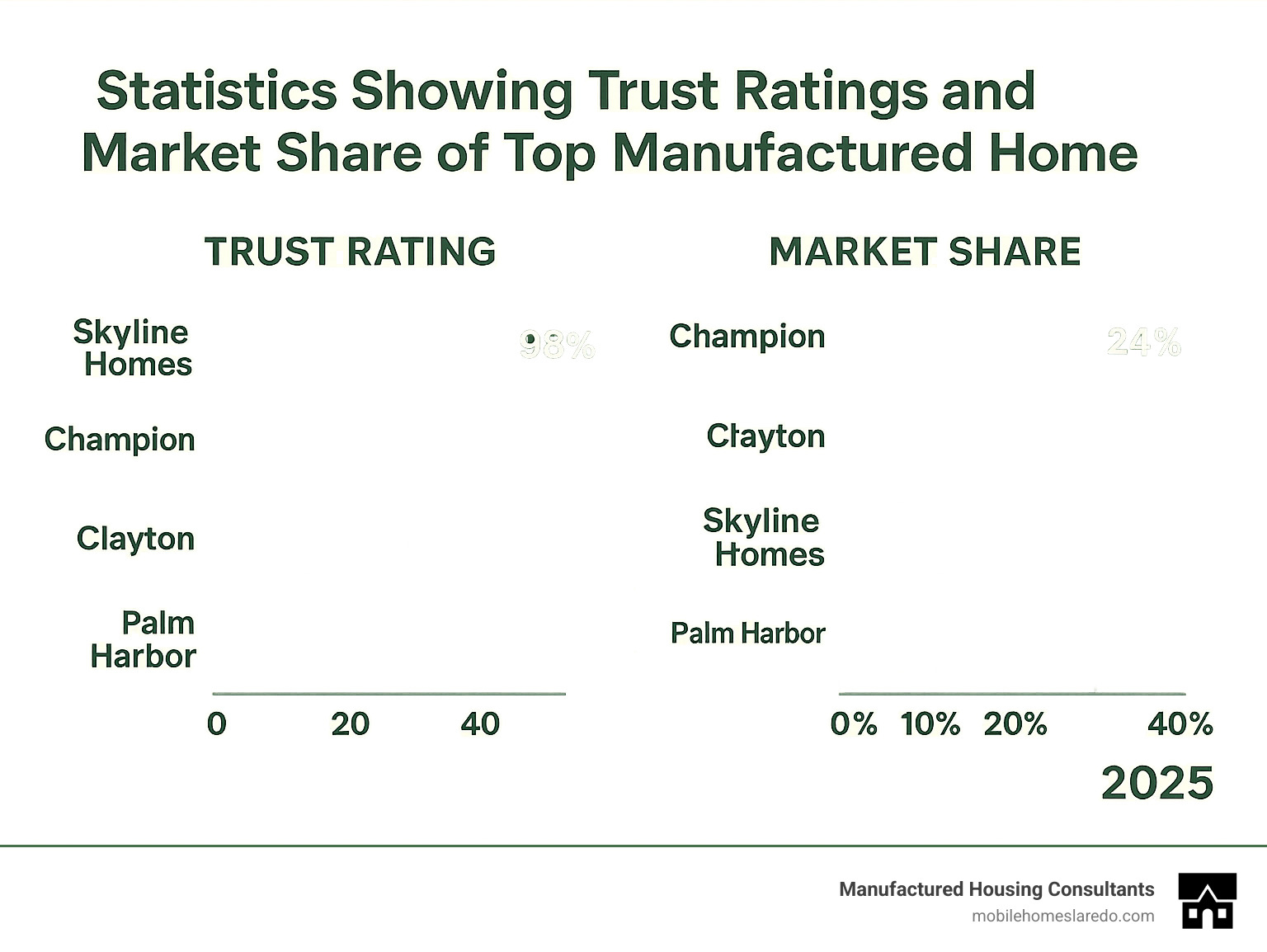
The Path to Ownership: From Factory to Foundation
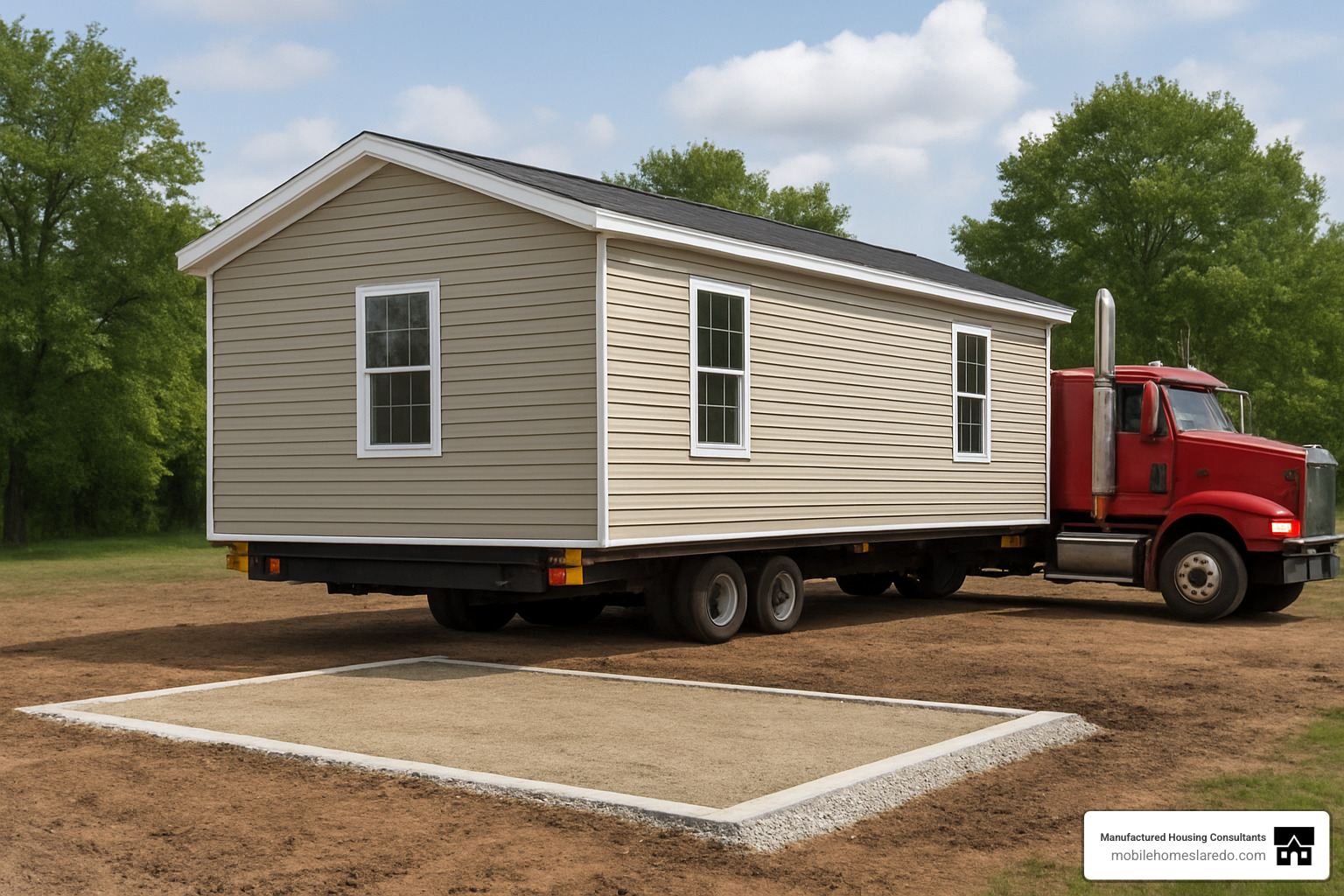
Understanding the process from selecting the best trailer home manufacturer to moving into your new home helps set realistic expectations and ensures a smooth experience.
Choosing a Floor Plan: Start by browsing available floor plans from your chosen manufacturer. Most offer virtual tours and detailed specifications. Consider your family size, lifestyle needs, and future plans. Single-wide homes work well for individuals or couples, while families typically prefer double-wide configurations.
Placing an Order: Once you’ve selected your home and customization options, you’ll place an order with a authorized dealer. This includes finalizing financing, selecting delivery dates, and confirming all specifications. Federal law requires you to purchase through authorized dealers, not directly from manufacturers.
Site Preparation: While your home is being built, prepare your site. This involves obtaining permits, having the land surveyed, clearing and leveling the ground, and installing utilities. The site must be properly prepared with adequate drainage and access for delivery trucks.
Permitting: Your dealer typically handles most permitting, but local requirements vary. Some areas require special permits for manufactured homes, while others treat them like any other residential construction.
Land Survey: A professional survey ensures your home is placed correctly on your property and meets all setback requirements. This is crucial for both legal compliance and future resale value.
Delivery Process: Manufactured homes are transported in sections on specialized trucks. Single-wide homes arrive in one piece, while double-wide homes come in two sections. The delivery requires clear access roads and adequate space for maneuvering large trucks.
Installation and Setup: Professional installers place the home on its foundation (piers, pads, or full basement), connect the sections if applicable, and ensure everything is level and secure. This process typically takes 1-3 days depending on the home’s complexity.
Utility Connections: Electrical, plumbing, and HVAC systems are connected to your utilities. This work must be performed by licensed professionals and inspected according to local codes.
Final Inspection: Both the manufacturer and local authorities conduct final inspections to ensure everything meets safety and building standards. Once approved, you receive your keys and can move in.
The entire process from order to occupancy typically takes 2-4 months, with most of that time spent on site preparation and permitting rather than actual construction.
Long-Term Ownership and Final Considerations
What to Expect After You Buy from the Best Trailer Home Manufacturer
Routine upkeep—changing HVAC filters, cleaning gutters, seasonal checks—mirrors any site-built home, but factory construction often means fewer settling issues and defects.
Modern materials and a steel chassis give these homes a 30-55 year life span, and many last far longer with proper care. Land ownership is the biggest factor in appreciation: homes on owned lots can gain value, while those on rented land usually depreciate.
When it comes to resale, location, condition, age, and brand matter. A well-maintained Clayton or Champion home on owned land is far easier to sell than a neglected unit in a rental community.
Manufactured-home-specific insurance is widely available and often cheaper than traditional homeowners policies. Energy-efficient models from top brands can also slash monthly utility bills—real savings that add up over time.
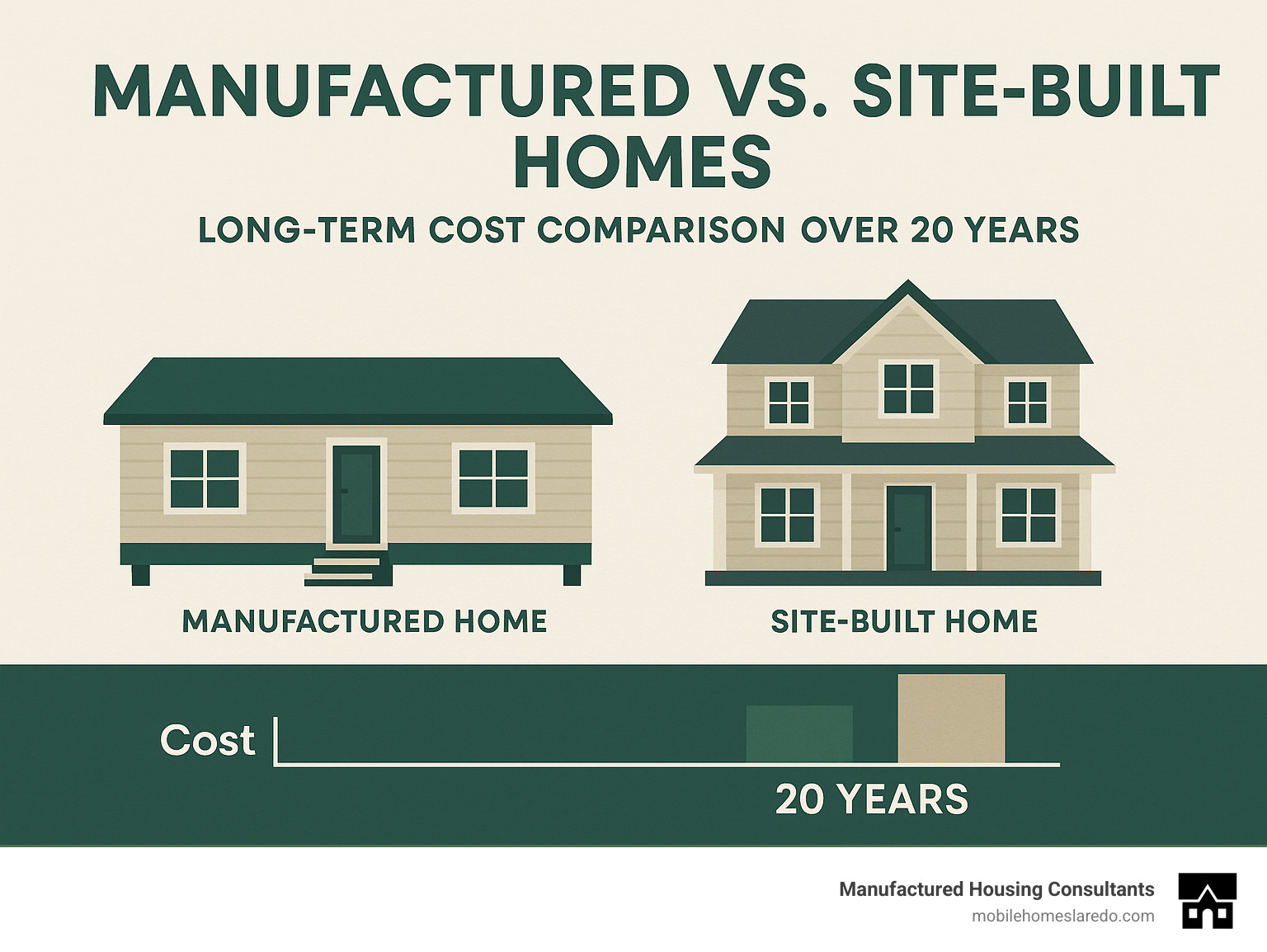
Making Your Dream Home a Reality
Quality should come first. Brands like Skyline, Clayton, and Champion have decades of proven performance, yet still keep prices around the $121,300 national average for manufactured homes.
With energy-saving features, wide customization choices, and quick build times, today’s factory-built homes deliver more value per dollar than almost any other housing option.
Manufactured Housing Consultants makes getting into one easy. Our Laredo team offers the guaranteed lowest prices, financing for all credit types, and even a FICO Score Improvement Program.
Whether you’re buying your first place or downsizing, we’ll match you with the best home from our 11 trusted manufacturers. Ready to take the next step? View our available homes and find how affordable ownership can be.

